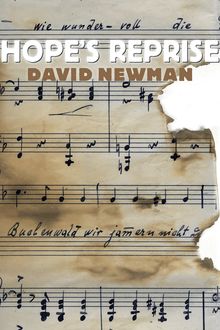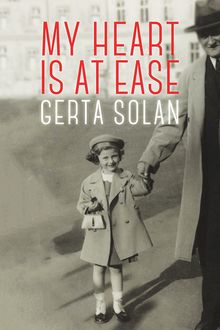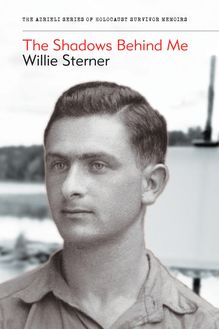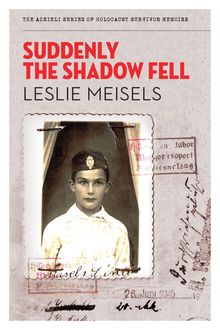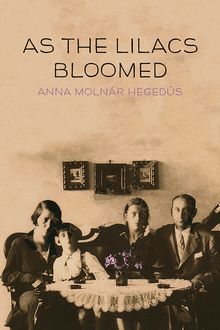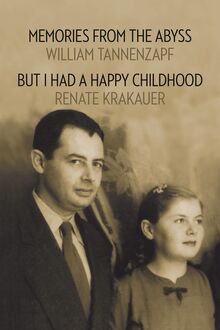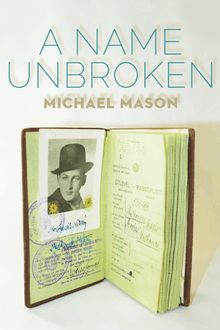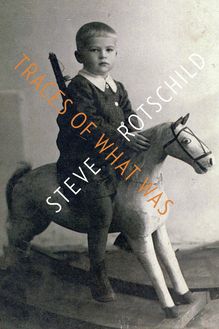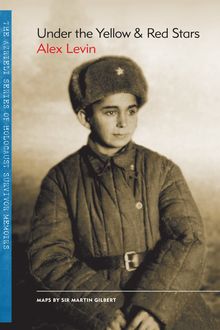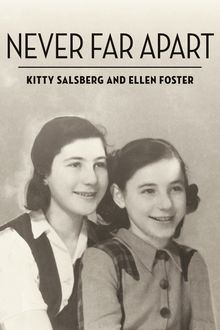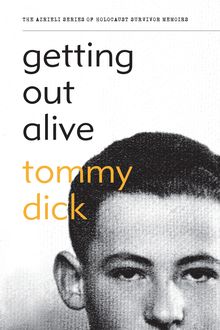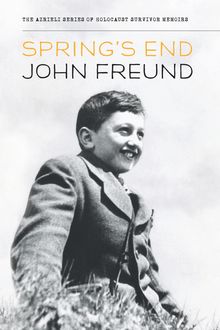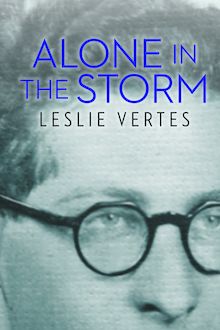Album of My Life , livre ebook
137
pages
English
Ebooks
2009
Vous pourrez modifier la taille du texte de cet ouvrage
Obtenez un accès à la bibliothèque pour le consulter en ligne En savoir plus
Découvre YouScribe en t'inscrivant gratuitement
Découvre YouScribe en t'inscrivant gratuitement
137
pages
English
Ebooks
2009
Vous pourrez modifier la taille du texte de cet ouvrage
Obtenez un accès à la bibliothèque pour le consulter en ligne En savoir plus
Publié par
Date de parution
01 septembre 2009
Nombre de lectures
2
EAN13
9781897470640
Langue
English
Poids de l'ouvrage
2 Mo
Publié par
Date de parution
01 septembre 2009
Nombre de lectures
2
EAN13
9781897470640
Langue
English
Poids de l'ouvrage
2 Mo
Album of My Life
Ann Szedlecki
The Azrieli Series of Holocaust Survivor Memoirs
SERIES II: SENIOR EDITORIAL BOARD
Sara R. Horowitz, Chair Irving Abella Naomi Azrieli Michael Brown Janet Webber Mark Webber
Senior Editor for this volume: Naomi Azrieli
Andrea Knight, Managing Editor Elin Beaumont, Program Coordinator Aurélien Bonin, Research & Translation Erika Tucker, Program Assistant Jody Spiegel, Executive Coordinator
Tamarah Feder, Managing Editor & Program Manager (2005–08)
Mark Goldstein, Art Director Maps by Sir Martin Gilbert and François Blanc
Contents
Series Preface: In their own words...
Introduction
Foreword
Ann’s Family Tree
Prologue
The Curtain Rises
Family Portraits
Lodz Memories
More Family Portraits
Sisters
The End of My Life in Lodz
Into the Unknown
Changing Times
Alone
My Luck Changes
My Last Year in the USSR
Poland
Epilogue
Glossary
Maps & Photographs
Copyright
About the Azrieli Foundation
Also Available
Series Preface:In their own words...
In telling these stories, the writers have liberated themselves. For so many years we did not speak about it, even when we became free people living in a free society. Now, when at last we are writing about what happened to us in this dark period of history, knowing that our stories will be read and live on, it is possible for us to feel truly free. These unique historical documents put a face on what was lost, and allow readers to grasp the enormity of what happened to six million Jews – one story at a time.
D avid J . A zrieli, C.M., C.Q., MArch Holocaust survivor and founder, The Azrieli Foundation
Since the end of World War II , over 30,000 Jewish Holocaust survivors have immigrated to Canada. Who they are, where they came from, what they experienced and how they built new lives for themselves and their families are important parts of our Canadian heritage. The Azrieli Foundation-York University Holocaust Survivor Memoirs Program was established to preserve and share the memoirs written by those who survived the twentieth-century Nazi genocide of the Jews of Europe and later made their way to Canada. The program is guided by the conviction that each survivor of the Holocaust has a remarkable story to tell, and that such stories play an important role in education about tolerance and diversity.
Millions of individual stories are lost to us forever. By preserving the stories written by survivors and making them widely available to a broad audience, the Azrieli Series of Holocaust Survivor Memoirs seeks to sustain the memory of all those who perished at the hands of hatred, abetted by indifference and apathy. The personal accounts of those who survived against all odds are as different as the people who wrote them, but all demonstrate the courage, strength, wit and luck that it took to prevail and survive in such terrible adversity. The memoirs are also moving tributes to people – strangers and friends – who risked their lives to help others, and who, through acts of kindness and decency in the darkest of moments, frequently helped the persecuted maintain faith in humanity and courage to endure. These accounts offer inspiration to all, as does the survivors’ desire to share their experiences so that new generations can learn from them.
The Holocaust Survivor Memoirs Program collects, archives and publishes these distinctive records and the print editions are available free of charge to libraries, schools and Holocaust-education programs across Canada, and to the general public at Azrieli Foundation educational events. Online editions of the books are available on our web site, www.azrielifoundation.org .
The Israel and Golda Koschitzky Centre for Jewish Studies has provided scholarly assistance and guidance in the preparation of these memoirs for publication. The manuscripts as originally submitted are preserved in the Clara Thomas Archives and Special Collections at York University, and are available for review by interested scholars.
The Azrieli Foundation would like to express deep appreciation to Tamarah Feder, Managing Editor and Program Manager 2005–2008 for her contribution to the establishment of this program and for her work on Series I and II . The program also gratefully acknowledges the following people for their invaluable efforts in producing this series: Mary Arvanitakis, Elin Beaumont, François Blanc, Aurélien Bonin, Florence Buathier, Mark Celinscack, Nicolas Côté, Darrel Dickson (Maracle Press), Andrea Geddes Poole, Sir Martin Gilbert, Esther Goldberg, Mark Goldstein, Irena Kohn, Elizabeth Lasserre, Lisa Newman, Carson Phillips, Susan Roitman, Judith Samuels, Randall Schnoor, Erica Simmons, Jody Spiegel, Mia Spiro, Erika Tucker and Karen Van Kerkoerle.
Introduction
There are people you get to know on the pages of a book whom you wish you could meet in person. So it is with Ann Szedlecki. In the compelling memoir you are about to read, Ann begins by calling herself “the daughter of nobody,” someone with a past that has “disappeared.” And yet, as she draws us into the life she led as a girl and young woman during World War II , she brings this past to life. Accompanying her on a long journey from her happy childhood in pre-war Poland to the cold harshness of Siberia, from skipping along Lodz’s streets dreaming of ice-cream to walking the route of a Soviet postal carrier in Ust-Kamenogorsk, we are drawn to this courageous, resilient, warm and funny woman. Ann Szedlecki’s highly readable story of wartime survival and coming-of-age is full of rich detail and poignant observation, beautifully rendering the vicissitudes of one young woman’s life in relation to the large-scale historical events that helped shape its course.
Ann Szedlecki was born Chana Frajlich in Lodz in 1925, the youngest child of Shimshon and Liba Bayla Frajlich. She begins her story by deftly reconstructing scenes from her pre-war childhood in the impoverished Jewish neighbourhood of Lodz, recounting the details of everyday life by invoking the image of an album of memories, inviting the reader to open it up with her, page by page. The author lovingly describes her parents and close relatives, musing on their characters and bringing out their personalities. Ann’s superbly executed portraits of the characters that peopled her world – the housewives, bakers, tailors, acrobats and undertakers – are tender and humourous, infused with a deep appreciation of Yiddish language and culture as well as the grief-tinged knowledge that this is a vanished world and way of life. Ann’s is also the story of an ordinary girl growing up – a girl who loved music and the movies, swimming and skating, and whose sense of self and place was very strong. Her family was poor and made even poorer by the onset of the Depression, but she was secure in the embrace of loving, caring people and in her identity as a Jew in Poland in the interwar period.
In 1939 Poland had the largest Jewish population of any country in Europe – approximately 3.3 million. The Jewish community in Poland had flourished for centuries and, in comparison to elsewhere in Eastern Europe and Russia, Polish Jews had experienced relatively peaceful relations with their neighbours. The Jews of Poland were able to develop important religious and national movements, establish renowned centres of religious learning, and develop the rich cultural heritage of the Yiddish language – the daily language of Eastern European Jews. By the middle of the twentieth century, Polish Jews had created a distinctive literary tradition that included Yiddish fiction, poetry, theatre and cinema. Life for the Jewish community of Poland was one also one of conflict and discrimination, however, its members often subject to prejudice and persecution and even physical assault by their non-Jewish neighbours. Jews had long been accepted because the commercial and financial activities they engaged in were seen to be beneficial to the economic life of the country, but long-standing religious bigotry endured and sometimes erupted with violent hostility.
The contradictions inherent in Jewish life in Poland became sharper in the interwar period. As a result of the post–World War I settlement, Poland became an independent country after more than a century of partition and rule by Russia, Prussia and Austria. Polish nationalism, growing since the end of the nineteenth century, now surged and also touched the Jewish population, who increasingly and proudly took part in the country’s political life and in outward expressions of nationalist support. The leadership of Marshal Josef Piłsudski – the father of the interwar Second Polish Republic – was largely viewed positively by the Jewish community. His policy of “state assimilation,” whereby citizens were judged not by their ethnicity but by their loyalty to the state, was seen as a great improvement over prior official attitudes. In addition, as Poland modernized and urban centres grew, many professions and industries became less restrictive, and opportunities for Jews opened up. Yet at the same time, and especially in the latter half of the 1930s, the rise in nationalist sentiment led to growing intolerance of ethnic minority groups by the general population and Jews, among others, found themselves the target of discriminatory practices. With the impact of the worldwide economic Great Depression that began in the early 1930s, the condition of Polish Jews steadily worsened.
Poland’s Jewish community was increasingly urbanized and by the early twentieth century the majority of the population – Ann’s parents among them – had moved from small towns and villages to cities. Polish Jews were also influenced by the process of modernization taking place all over Europe. Most Je
